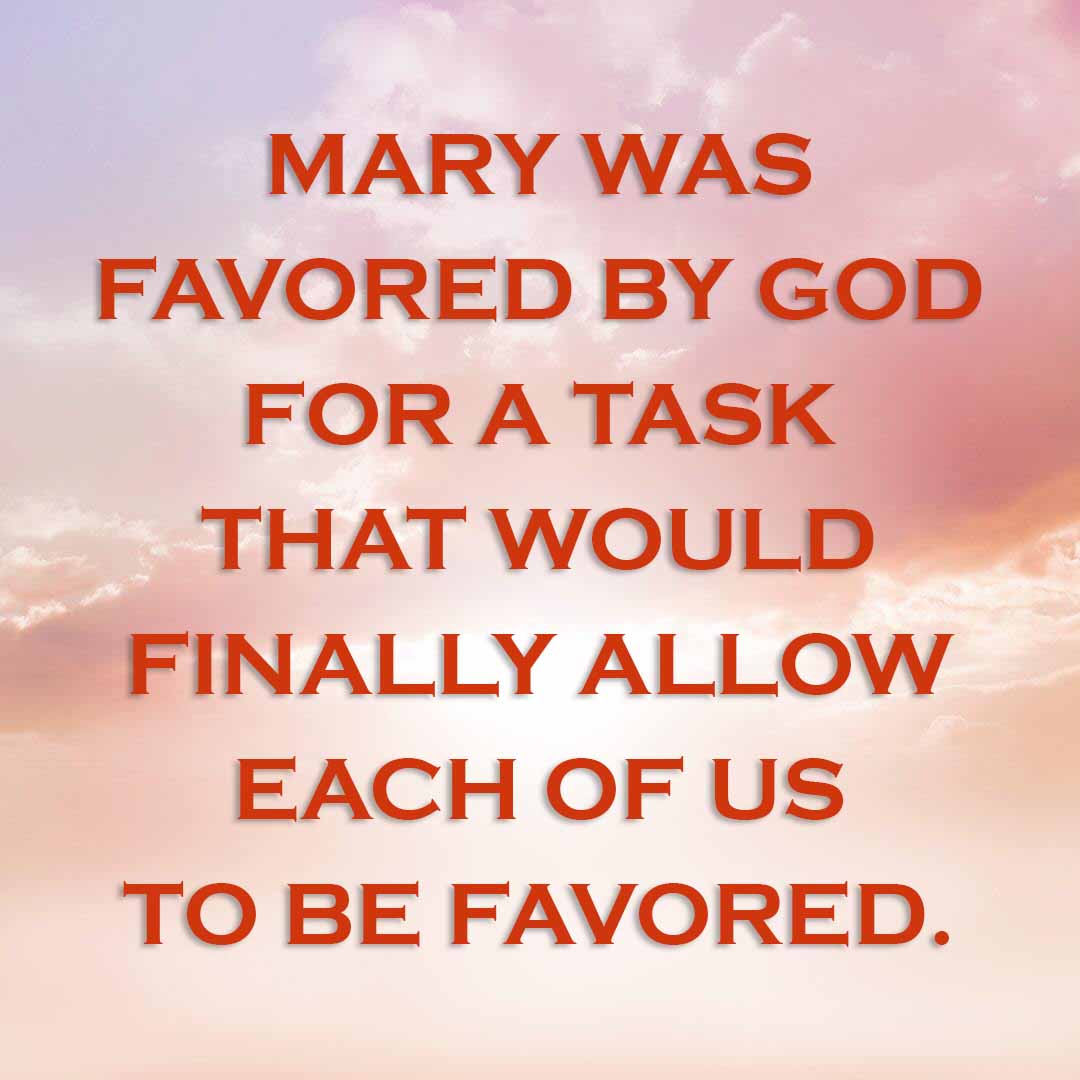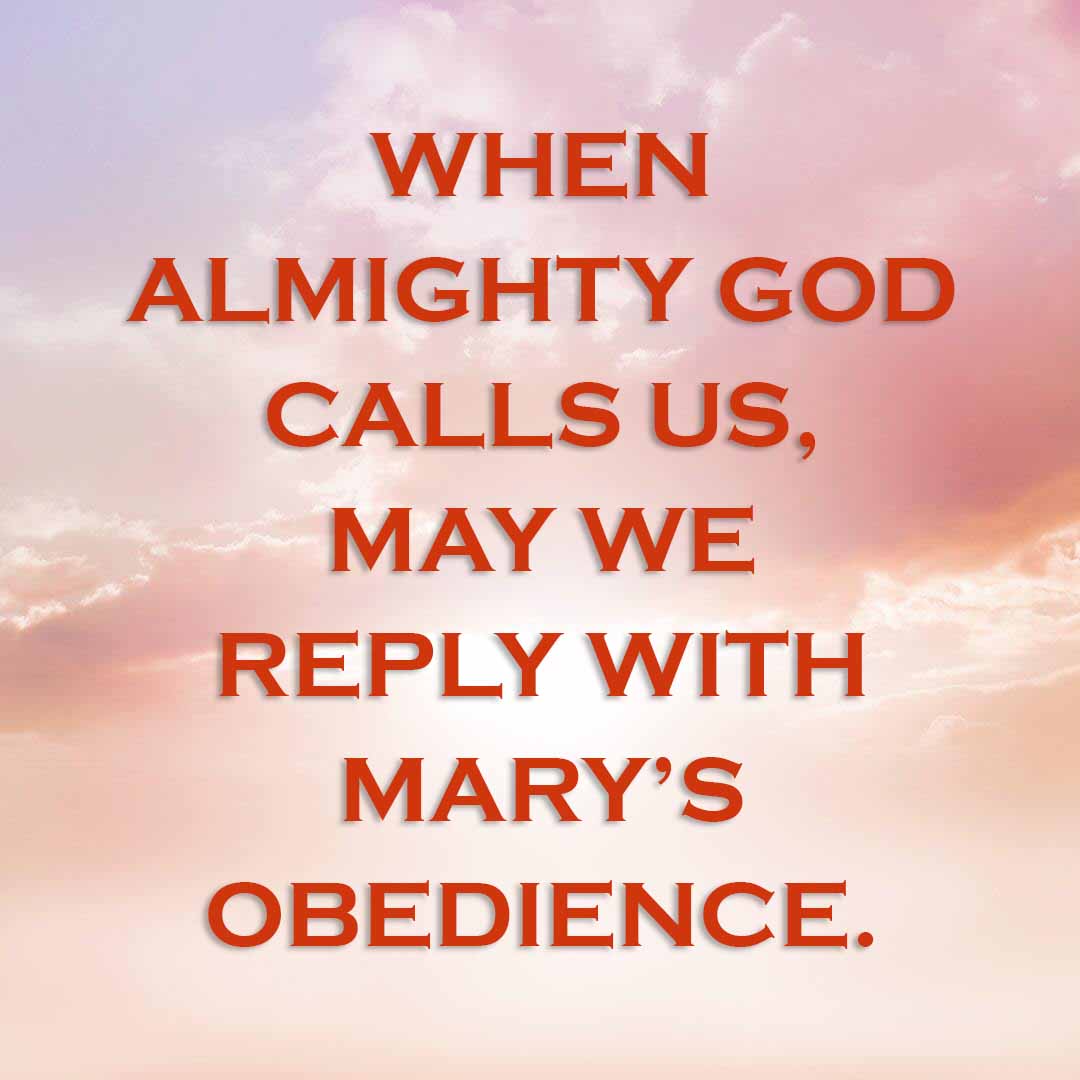Why Mary? Mary herself must have wondered, Why am I a “favored woman”? Why me? Indeed, the reasons she was chosen are known only to God. But it is clear that she was no random selection. Though an ordinary small-town girl, she must be obedient and courageous. From her song (see Luke 1:46-55), we know that she was a woman of Scripture, a woman of faith. She must be a virgin, that the glory of God might be miraculously demonstrated. She must be a peasant, in keeping with the humble nature of the Lord’s birth.
Mary was all these things. She honored and obeyed the will of her Father, providing His only Son a home from which He would emerge to launch the work that would define all of human history. The Child toddled behind her in His infancy. Then, in time, she followed behind Him—all the way to the cross and the tomb.
Mary's Hometown of Nazareth
Mary and Joseph's Engagement
Mary's Encounter With an Angel
Plus, Discussion Questions
Mary was favored by God for a task that would finally allow each of us to be favored. Gabriel said, “The Lord is with you,” and as a result, the Lord is with us all. In that way, God sent the ultimate Christmas gift not just to Mary but to all of us—and it was Mary who delivered the package. When God chose her to be the mother of Jesus, her only observable qualifications were traits like obedience, courage, faith, and moral purity. Such qualities are often overlooked or even belittled by society, but they equipped Mary for God’s service.

Mary's Hometown of Nazareth
Mary’s hometown of Nazareth was remarkably unremarkable. It was much like any number of other villages on the Galilean plain. Plain? That was actually a pretty good word for the town.
No one particularly boasted of being a Nazarene. Fewer than two thousand citizens called it home. The Romans kept a regional garrison there, meaning the place was considered unclean to most Jewish people. And when the town did produce a compelling new Teacher, the hometown was one strike against Him. For example, “ ‘Nazareth!’ exclaimed Nathanael. ‘Can anything good come from Nazareth?’ ” (John 1:46). Nathanael, however, was later a follower of the Teacher.
Nazareth was Jewish by birthright, Roman by claim, and Greek by influence. It was no more than a quiet town where men attended to their daily work and women their households. If it was excitement you were after, you had to walk four miles up the road to Sepphoris. Now there was a city, a modern place that kept up to date with the latest in Greek culture.
Did Mary ever walk to Sepphoris? Did she long for a more exciting life? We can’t be certain. She seems to have been a typical young lady, in a typical small town in Galilee, just before the first century. That presupposed a quiet life passed in useful service to family and community. How could Mary have known about the life that lay ahead for her? What would she have thought about the divine burden she would carry, the glories she would behold, the loss she would experience?
On that day of days, Mary no doubt turned her efforts to the mundane task of grinding the grain into flour for daily bread. Did she urge a little brother or sister to gather thorns and sticks for the oven? Did she hurry about the rooms of the family home, tidying, dusting, fetching water pots?
Mary and Joseph's Engagement
These are good guesses, but we can be sure of one subject that held a grip on her imagination. What young girl, from any time or place, wouldn’t be preoccupied with her own approaching wedding?
Yes, any girl’s most cherished hope was about to be fulfilled in Mary’s life. She would be thinking about her young carpenter. She and Joseph may have played together in the fields as children. Now they had grown up and were ready to begin adult life. The two sets of parents had arranged a marriage that would unite not just the two young people but the two families. The couple was betrothed, the most binding form of engagement. Legally it meant that Mary was already Joseph’s wife, though they could not be together until after the wedding.
What lay ahead for Mary was a whirlwind of preparation, perhaps the most enjoyable time of a young lady’s entire life. There would be the exchanging of gifts by the family; the joy and revelry of the ceremony, with the opportunity to wear jewelry and fine clothes; and finally, of course, she would leave her home—a moment both happy and sad. A Jewish young lady would live with the groom’s family, and there the two would begin a life and a family to call their own.
Mary must have gone about her daily chores with a happy heart. These were her final days as a young maiden.

Mary’s Encounter With an Angel
And then, in the midst of routine and readiness, a single supernatural moment shattered the normality of her life. An angel stood before her, as the first chapter of Luke’s Gospel recounts. When did it happen? Perhaps Mary was kneeling beside her bed, attending to prayers, beginning or finishing a day. How frightening the sudden arrival of a heavenly messenger must have been!
The angel appeared to her and said, “Greetings, favored woman! The Lord is with you” (Luke 1:28). Seeing her confusion, he assured her there was no reason to fear, for the news he brought was wonderful. God had decided to bless her. She would have a Son who should be called Jesus. He would be the Son of the Most High, and He would reign over His people forever.
Such a powerful and unexpected message would be difficult to grasp at first. Mary, naturally enough, thought about the practical elements rather than the eternal ones. She wanted to know how it was that a virgin could become pregnant. Gabriel patiently explained that the Holy Spirit would miraculously bring forth a Child from her, and this Child would be the Son of God.
Consider the change that came about in Mary’s life. Thoughts of marriage turned to thoughts of motherhood, and thoughts of a quiet, ordinary life turned to the anticipation of being at the center of a spectacular miracle from heaven. No wonder God sent Gabriel himself to help her understand and prepare.
Why did God choose Mary? Consider her response to Gabriel, “Behold the maidservant of the Lord! Let it be to me according to your word (Luke 1:38, NKJV).” When Almighty God calls us to an assignment that is beyond our comprehension, may we reply with such obedience.

Discussion Questions
- Like all Jewish women, Mary surely knew the prophecy of Isaiah 7:14. Why do you think she was still so surprised when Gabriel came to her?
- When you read the Bible, are you quick to believe and accept its message, like Mary, or do you question and disregard it? Why?
For Further Study:
According to the following Scriptures, what qualifications did Mary have to be the mother of Jesus? Luke 1:27; Luke 1:28, 30; Luke 1:38; and Luke 1:47.
This article is an excerpt from David Jeremiah's book Why the Nativity? an exploration of 25 compelling reasons we celebrate the birth of Jesus.
Unless otherwise indicated, all Scripture quotations are taken from the Holy Bible, New Living Translation.
You Might Also Enjoy:
• Why Was Jesus Born in Bethlehem?
• Prophecies Fulfilled by Jesus
• How Do We Know Jesus Is the Son of God?
• Why Did God Choose Mary?
• A Red-Letter Christmas Advent Devotional
• Understand Old and New Testament Prophecy
• 10 Bible Contradictions About Jesus Explained
• Why Do We Celebrate Christmas on December 25?
